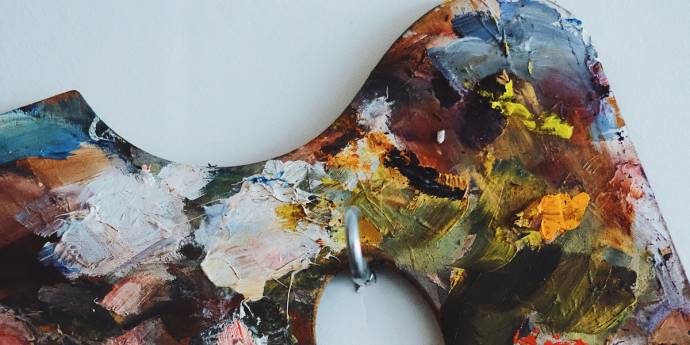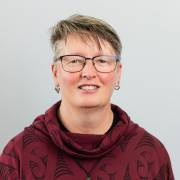Finding the right fit

There are unlikely to be many people who can say they have been interested in governance since they were little, but Barb Long MInstD is one of them. A participant in the 2023 Mentoring for Diversity programme, the Dunedin-based CEO is a presiding member of Trinity Catholic College and Deputy Chair of the Otago Community Trust.
“I grew up with my dad living a 12-step programme,” says Long, who was two years old when her father stopped drinking. “This influenced my values, how to overcome challenges and a purpose in serving others.

Barb Long
“I grew up supporting other people . . . knowing that volunteering was something you did, and if you’re able to, you give back,” says Long, whose mother had been a volunteer in local committees and community initiatives. As a child, Long was involved in St John’s cadets, which meant doing service at sports fields.
A former area manager for Plunket, Long has worked with boards for more than two decades and, more formally, over the past 14 years. When asked why she is drawn to governance, she says “it’s having the ability to influence and make change for the greater good”.
“It is where you get to use your skills and attributes to contribute to sustainable and improved outcomes, but it’s also an opportunity for growth,” says Long.
Last year, when Long was accepted into the Institute of Directors’ Mentoring for Diversity programme with Melanie Templeton MInstD as her mentor, Long was focused from the get-go and came away with an ability to see her full potential, along with an acute clarity on what she can offer a board.
“I learnt to look at my value proposition and, with Melanie as my mentor, I learned that I bring breadth and diversity, and how that can contribute to positive outcomes,” says Long, who identifies as diverse.
“There are people on boards that are stronger in some areas than others and I think that’s purposeful. So, own it.”
As a lesbian, a parent and with a knowledge and awareness of those who are often marginalised and disadvantaged within our society, she says being able to bring a different way of seeing and thinking into the boardroom is an attribute.
“Sometimes I have to take that clear step back and go, ‘I have some expertise in communities like disability, mental health and addiction . . . I can’t speak for the whole community but there is an aspect of consideration that’s being missed here’.”
Long doesn’t fit into what she refers to as a stereotypical director, especially in the formal context of a corporate board. But that in itself is changing today, with diversity and board composition increasingly important, as new skills and thinking are needed at the table.
Since completing the programme, Long has felt empowered and more confident to ask questions, taking that next step to harness her professional development. She has also been able to bring some newfound knowledge into the boardroom with other board members.
“I’ve been able to ask, ‘What are our strengths? Would we be open enough with each other about our areas for development and how can we support each other with that?’”
Posing those bigger picture questions ensures the organisation is prepared for the future – and a step towards encouraging better governance practices. Long reinforces the importance of boards making time for growth and improvement.
“There are people on boards that are stronger in some areas than others and I think that’s purposeful. So, own it. Sometimes you only get to do that stuff if you’re throwing all the balls up in the air and starting again, or if your strategic focus is undergoing significant change.”
If the board isn’t facing challenges, she believes there can be a tendency for voices to go unheard and, when times are tough, it is vital that every perspective has a chance to be heard. But making room for diversity means boards must look at themselves in the mirror, no matter how confronting it might be to challenge some of their own thinking and unconscious bias.
“That’s why having trust, respect and doing relationship-building is important, and often the mahi and the intensity of what’s required on a board doesn’t necessarily allow for that,” says Long.
“I often end up as chair either because nobody else wants to raise their hand or I’m perceived as having those skills and expertise, but it’s a lot of work.”
Now with far greater clarity and purpose, Long is taking time to explore potential options. What she won’t be doing is settling for the wrong role or sitting on “a broken board”.
“I don’t want to keep going in as a ‘fix-it person’,” she says. While that might sound harsh, she says broken boards are difficult to navigate and often possess a lack of understanding about governance best practice.
“It’s where people get too involved in operations – and that’s what they like doing. It’s lots of conflict, rather than having challenging conversations and reaching a resolution, because challenging conversations often have a purpose,” she says.
Other red flags include multiple board member departures, unresolved issues, an inability to retain or recruit board members, and a general lack of cohesion. Where board members won’t step up to the chair role or are unwilling to pursue any professional development to become more effective, is another red flag.
“I often end up as chair either because nobody else wants to raise their hand or I’m perceived as having those skills and expertise, but it’s a lot of work. I’ve recently reduced my paid work slightly to start looking at my governance and, for me, it has to be about the next right fit.”
Find out more about the IoD’s Mentoring for Diversity programme at membership/development-programmes.